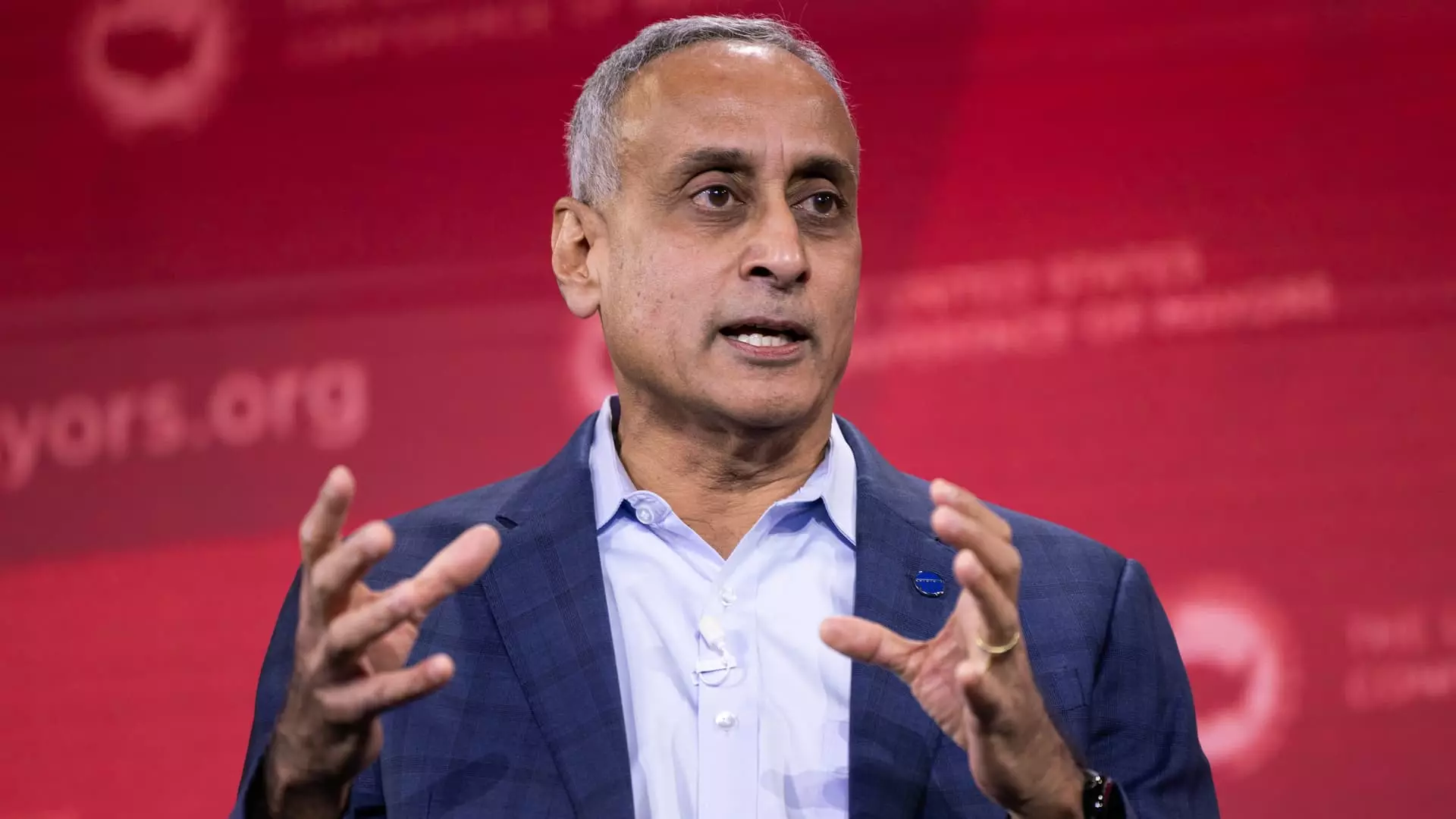In a notable shake-up within Google’s upper management, CEO Sundar Pichai announced that Prabhakar Raghavan, the current head of the search and ads division, will transition to the role of chief technologist. This move marks a significant moment in Google’s ongoing efforts to navigate a highly competitive landscape, particularly as it grapples with the rapid advancements in artificial intelligence (AI). Raghavan’s twelve-year tenure leading pivotal teams at Google has molded the company’s search capabilities; however, his new role will allow him to influence a broader technological vision in partnership with Pichai.
Raghavan is not just stepping sideways; he is evolving into a role that necessitates both technical acumen and leadership strength. According to Pichai, this transition signifies Raghavan’s ambition to expand his impact on the organization. The context behind this change is critical; as AI technologies gain prominence, the demand for innovative and agile leadership is at an all-time high. The restructuring exemplifies Google’s intent to bolster its competitive edge amid the escalating pressure from rivals and ongoing legal scrutiny regarding antitrust claims associated with its search and advertising frameworks.
Stepping into Raghavan’s former position is Nick Fox, a seasoned executive with an extensive history at Google. Fox has played an instrumental role in shaping the company’s AI product trajectory and has collaborated closely with Raghavan in the past. His appointment signals continuity within leadership while also conveying a strong forward-looking vision for Google’s Knowledge and Information division, which encompasses essential services like search and advertising.
Fox’s background, particularly his experience in product and design for Google Assistant, positions him uniquely to tackle the evolving challenges within the organization. This transition suggests that the company is gearing up to intensify its focus on AI-driven functionalities, as Pichai noted the need for a more rapid response to market dynamics.
In conjunction with leadership changes, Google is also realigning its departments to optimize for efficiency and project responsiveness. For instance, the teams behind Google’s Gemini app, which serves as a platform for direct AI consumer products, will now be integrated with Google DeepMind. This restructuring emphasizes a strategic move to enhance collaborative efforts, streamline product development cycles, and ultimately deliver AI innovations more swiftly to users.
Moreover, the reassignment of the Assistant teams to the Platforms and Devices unit highlights Google’s awareness of integrated experiences. By positioning these teams closer to product surfaces, Google aims to foster more cohesive development pathways and an agile response to user needs.
These significant transitions within Google’s leadership undoubtedly reflect the shifting nature of the tech landscape. While Raghavan’s departure from day-to-day search and ad operations might raise questions, the strategic placement of experienced executives like Fox illustrates a steadfast commitment to leading the company towards an AI-centric future. As Google continues to confront external pressures, including fierce competition and legal scrutiny, these leadership shifts may prove essential in driving innovation and maintaining the company’s pivotal status in the tech industry. The journey ahead promises to be both challenging and transformative as Google embarks on this new chapter.


Leave a Reply